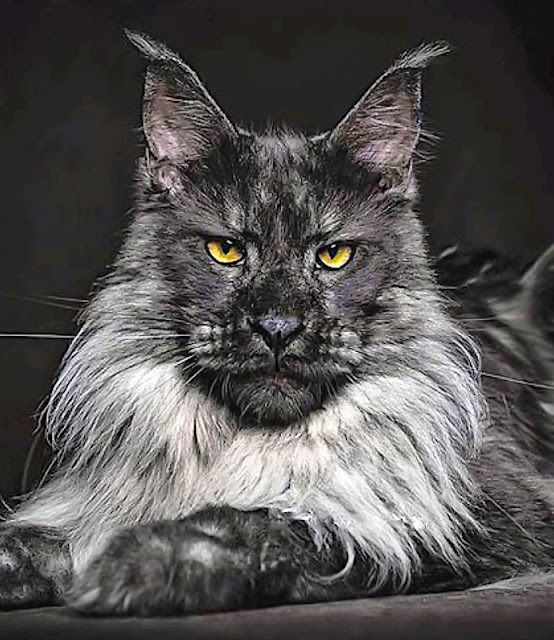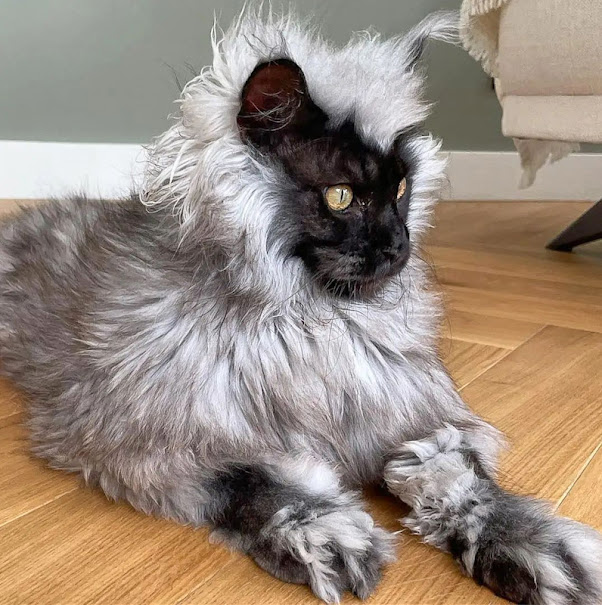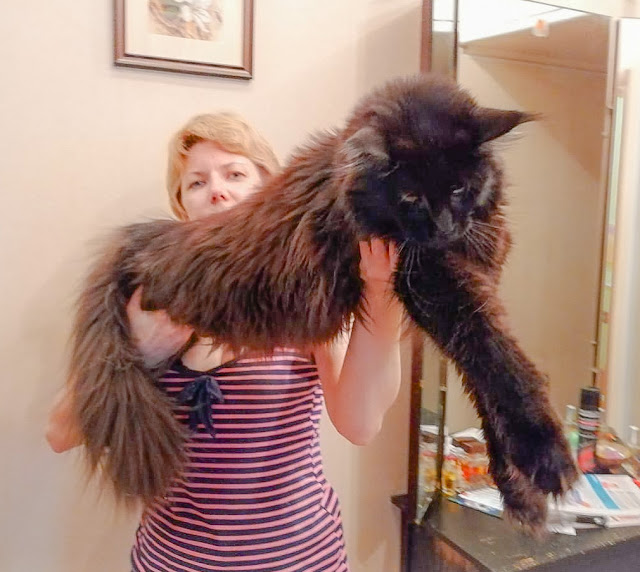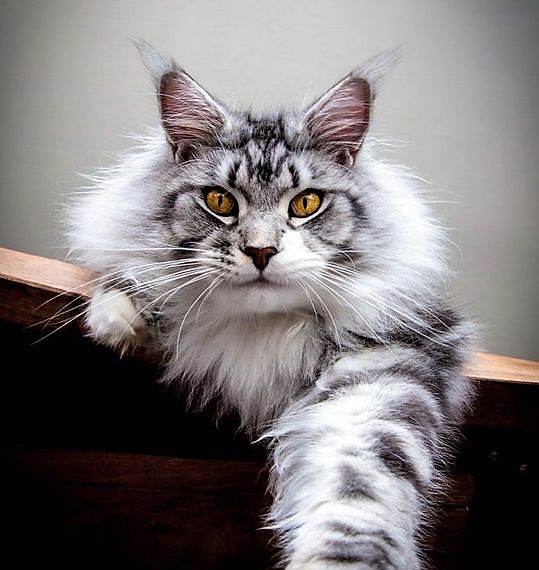 |
| Planning permission for a hobby Maine Coon breeding facility at a home refused by planning authorities. Image: MikeB |
Goole cat breeder plans refused after complaints from neighbours about “noise and smell”. The Western Area Planning Sub-Committee of East Riding Council, UK rejected the proposal for a site on Western Road, Goole, which was intended to accommodate a total of 12 cats. While council officers advised approval of Jekaterina Jermakova's plans, two councillors and a self-proclaimed cat hater, Councillor Thomas Robson, deemed the complaints to be overstated.
Conversely, Councillor Nick Coultish of Goole North reported that several neighbours had raised concerns about the noise and odour from the large cats, comparable in size to medium-sized dogs, that were to be bred on the premises. The design for the breeding facility, partially constructed already, included provisions for housing nine cats in the backyard at any given time.
Councillors were informed that the owner intends to breed Maine Coon cats, a sizable domestic breed that originated in the United States. Additionally, the applicant has three personal cats.
RELATED: Former police officer has to teardown her catio because of complaints from neighbours
Lesson
Clearly big lessons have been learnt. Most cat breeders are hobby breeders. Their facilities are their home with extensions. You may need planning permission and the neighbours may object and planning refused.
If that happened as is the case the person's dreams are killed at a stroke.
In this instance the person wanted to breed Maine Coons which appears to have been a factor albeit minor in the decision making process. It does not matter what size the cats are.
But breeding cats being unsterilised can be noisy. Noise pollution in a neighbourhood is a big issue for many residents.
Here are some general points on breeding cats being noisy:
When it comes to mating behaviour in domestic cats, both males and females can exhibit vocalizations. Here are some factors that influence their noise levels during mating:
Breed: Certain breeds, such as Siamese cats, are more vocal overall. This tendency may extend to mating behaviour, with Siamese cats being more likely to make noise during mating compared to other breeds.
Age: Younger cats may be more vocal during mating due to inexperience and excitement. As they age and become more familiar with mating, they may become less vocal.
Territory: Cats are territorial animals. Those feeling threatened or insecure in their territory may be more vocal during mating to assert dominance and protect their space.
Hormones: Hormonal changes play a significant role. Female cats in heat may be more vocal as they seek a mate, while male cats compete for attention.
Stress: Cats under stress or anxiety may vocalize more during mating as a coping mechanism.
Individual Personality: Cats have unique personalities, which can influence their vocal behaviour during mating.
So, yes, both male and female breeding cats can be noisy during mating, but it varies based on individual factors and breed tendencies.
------------
Please excuse the occasional typo due to preparing these articles at breakneck speed using Dragon Dictate. I don't have a proof reader.











Comments
Post a Comment
Please share your Maine Coon experiences.